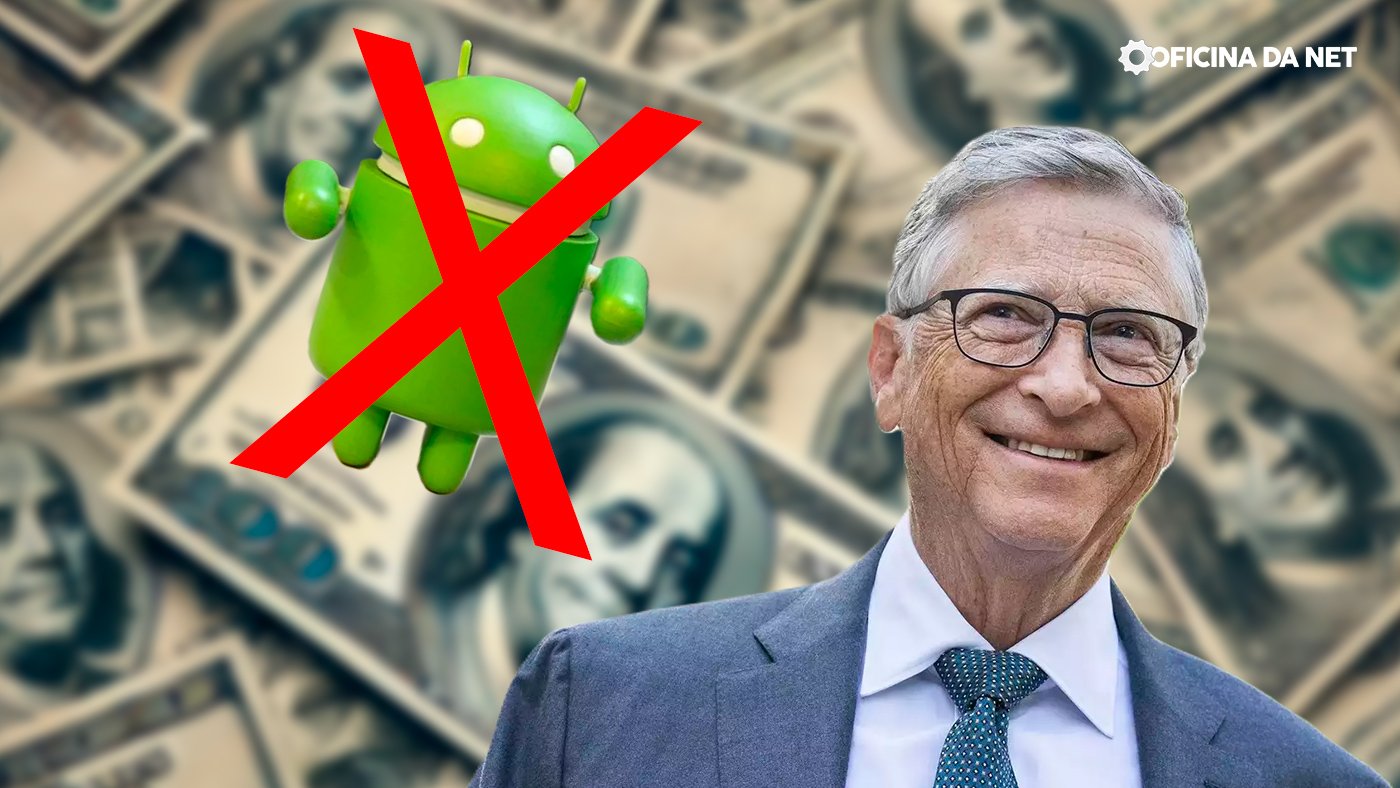Tech titans, who lead companies to success, can also make mistakes. Bill Gates, for instance, acknowledged a major strategic error he made while running Microsoft. This admission gained attention when the co-founder of Android later made sarcastic remarks about it online, underscoring the irony of the situation.
In the early stages of Android, it was caught between Microsoft and Google. Microsoft missed the opportunity to invest in Android, enabling Google to seize control and transform it into the leading mobile operating system globally. Microsoft’s failure to recognize the potential of Android resulted in a significant loss for the company.
Android currently holds the biggest share of the mobile OS market, outperforming iOS in user numbers. Microsoft’s choice to not invest in Android, along with legal issues related to antitrust laws, hindered the company from becoming a major player in this field. Microsoft introduced Windows Phone later on to regain lost market share, but it did not succeed against Android and iOS, leading to a business setback.
The co-founder of Android stated that the aim of creating the system was to avoid Microsoft’s control over the mobile market, similar to its dominance in computers, which stifled innovation. He also suggested that Bill Gates was more accountable for the $400 billion loss than he realized.
From the inception of Android to the conclusion of Windows Phone
We have compiled a series of events from the rise of Android to the decline of Windows Phone.
- In 2003, Android was established by Andy Rubin, Rich Miner, Nick Sears, and Chris White.
- In 2005, Google purchased Android Inc. for approximately 50 million dollars.
- In 2007, the introduction of the iPhone by Apple and the establishment of the Open Handset Alliance by Google with the launch of Android influenced the smartphone market significantly.
- The HTC Dream, also known as T-Mobile G1, was the initial Android device launched in September 2008.
- Android started to become popular during 2008-2009, with device makers like Samsung, HTC, and Motorola quickly embracing the system for their smartphones.
- In 2010, Microsoft introduced Windows Phone as a new mobile operating system to compete with Android and iOS and make its mark in the smartphone market.
- In 2011, Microsoft and Nokia entered a partnership where Windows Phone became the primary operating system for Nokia smartphones, aimed at boosting Microsoft’s mobile market share.
- In 2011, Android overtook Nokia’s Symbian and Apple iOS to become the leading mobile operating system globally.
- In 2013, Microsoft acquired Nokia’s mobile division for $7.2 billion to enhance its presence in the smartphone market.
- In 2014, Windows Phone struggled to keep up with Android and iOS, leading to a small market share and its discontinuation in 2017.
In 2003, Android was established by Andy Rubin, Rich Miner, Nick Sears, and Chris White.
In 2005, Google bought Android Inc. for approximately $50 million.
In 2007, the introduction of the iPhone by Apple had a significant impact on the smartphone market, leading to the establishment of the Open Handset Alliance by Google and the introduction of the Android platform as open source.
The HTC Dream, also called T-Mobile G1, was the initial smartphone to operate on the Android system when it was launched in September 2008.
Android experienced rapid growth in 2008-2009, becoming popular with manufacturers like Samsung, HTC, and Motorola for their smartphones.
In 2010, Microsoft introduced Windows Phone as a new mobile operating system to compete with Android and iOS in the smartphone market, following their rapid growth.
In 2011, Microsoft collaborated with Nokia to make Windows Phone the primary operating system for Nokia smartphones, aiming to boost Microsoft’s mobile market share.
In 2011, Android became the leading mobile operating system, overtaking Nokia’s Symbian and Apple iOS.
Microsoft acquired Nokia’s mobile division in 2013 for $7.2 billion to enhance its presence in the smartphone market.
Windows Phone was unsuccessful in competing with Android and iOS, leading to its decline and eventual discontinuation in 2017.
Unilad typeface

